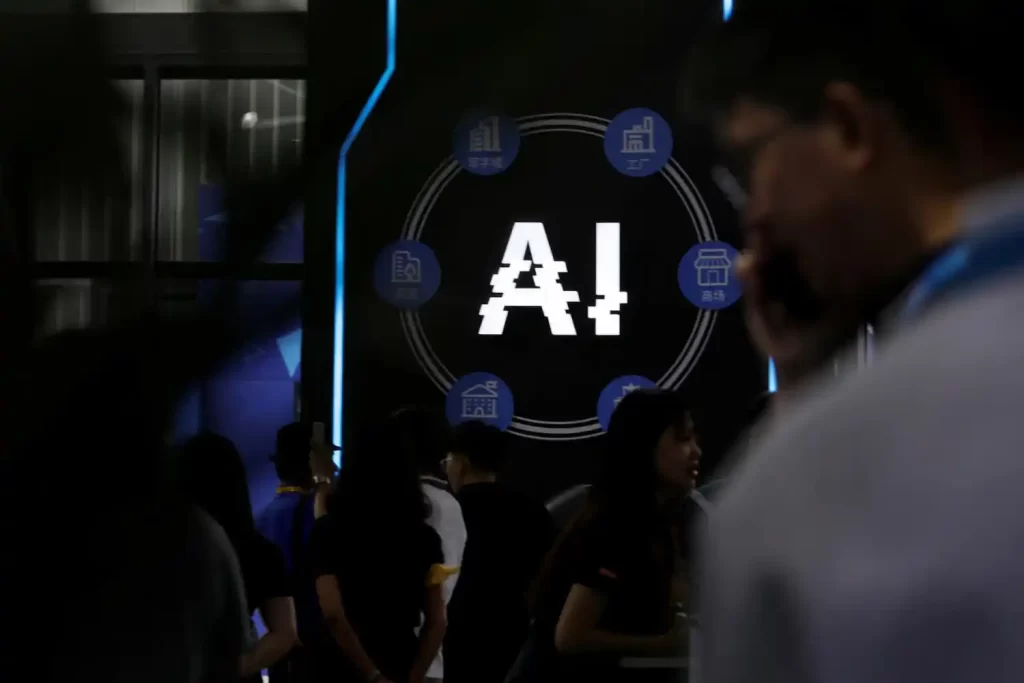In today’s fast-paced digital landscape, staying ahead of the competition requires constant innovation. One of the most transformative technologies influencing the marketing world is Artificial Intelligence (AI). AI is reshaping how brands interact with customers, optimize their campaigns, and analyze performance. If you’re looking to harness the power of AI to enhance your digital marketing efforts, here’s a comprehensive guide on how to integrate AI into your marketing campaigns.
Understanding AI in Digital Marketing –
Artificial Intelligence involves the development of machines and systems that can mimic human intelligence. In digital marketing, AI refers to using algorithms and data-driven models to automate tasks, personalize content, predict trends, and analyze customer behavior. By integrating AI, digital marketers can offer more personalized experiences, optimize content, and improve decision-making in real-time.
Personalizing Customer Experience with AI –
Personalization is key to engaging today’s consumer. AI enables marketers to create tailored experiences that resonate with individual preferences. Here’s how AI can be used to personalize the customer experience:
- AI-powered content recommendations: Platforms like Netflix and Amazon use AI to recommend products or content based on user behavior and preferences. Similarly, AI tools can be integrated into your website or app to recommend products, blog posts, or services based on the user’s browsing and purchase history.
- Dynamic email marketing: AI-driven email marketing platforms like Mailchimp and HubSpot use machine learning to segment users based on their behaviors and preferences, ensuring that the right message reaches the right customer at the right time.
- Chatbots for real-time engagement: AI-powered chatbots, like Drift or Intercom, engage customers in real time, offering personalized assistance based on past interactions, browsing history, and purchase intent.
Optimizing Campaigns with AI –
AI can also optimize your digital marketing campaigns in several ways. These AI tools use machine learning algorithms to analyze vast amounts of data and predict what strategies will work best for your business.
- AI-driven advertising: Platforms like Google Ads and Facebook Ads use AI to automate bidding strategies and optimize ad placements. AI can analyze which ads perform best, adjust bids in real time, and allocate budgets to the most profitable campaigns.
- Predictive analytics for better targeting: AI analyzes user data to predict behavior, trends, and outcomes. For example, predictive analytics tools can forecast customer lifetime value, allowing marketers to focus on high-value prospects and tailor their campaigns to target the most lucrative audiences.
- A/B testing with AI: AI tools can run A/B tests to automatically identify the most effective ad copy, visuals, and landing pages. This allows marketers to continuously improve their campaigns without manually analyzing test results.
Enhancing Content Creation with AI –
Creating compelling, high-quality content is essential for digital marketing. AI tools can assist in streamlining content creation and making it more relevant to your audience.
- Automated content generation: AI-powered content creation tools like Jasper (formerly Jarvis) and Writesonic can generate blog posts, product descriptions, social media posts, and more. These tools use Natural Language Processing (NLP) to produce human-like text, saving time and resources.
- AI for content curation: AI can help marketers stay on top of content trends and curate content relevant to their audience. Tools like BuzzSumo and Curata use AI to recommend articles, videos, and other content based on trending topics or specific keywords.
- Voice search optimization: With the rise of voice assistants like Alexa, Google Assistant, and Siri, optimizing content for voice search is becoming crucial. AI helps in understanding voice search queries, and using AI-powered tools can ensure your content is structured to rank for these queries.
Integrating AI with SEO –
AI is making its way into SEO by helping marketers optimize content, enhance user experience, and drive organic traffic.
- AI-driven SEO tools: Tools like SurferSEO and Clearscope use AI to analyze top-ranking content and suggest improvements in keyword usage, content structure, and readability. They can help marketers stay ahead of search engine algorithms and create content that ranks better.
- Voice search and AI: Since voice search queries are typically longer and more conversational, optimizing for voice search is crucial. AI can help you analyze and implement long-tail keywords and questions to improve your chances of appearing in voice search results.
- Content optimization: AI-powered tools can evaluate your existing content and recommend changes to improve keyword density, readability, and overall quality, ensuring that your content stays relevant and competitive.
Conclusion –
Integrating AI into your digital marketing campaigns is no longer a futuristic idea—it’s a necessity for staying competitive in today’s digital age. From personalizing customer experiences to optimizing campaigns, analyzing customer behavior, and enhancing content creation, AI can transform how you engage with your audience. However, it’s important to strike the right balance between automation and human touch to ensure that AI is used ethically and effectively.
By embracing AI, marketers can not only improve the efficiency of their campaigns but also offer more personalized, data-driven experiences that drive better results.

